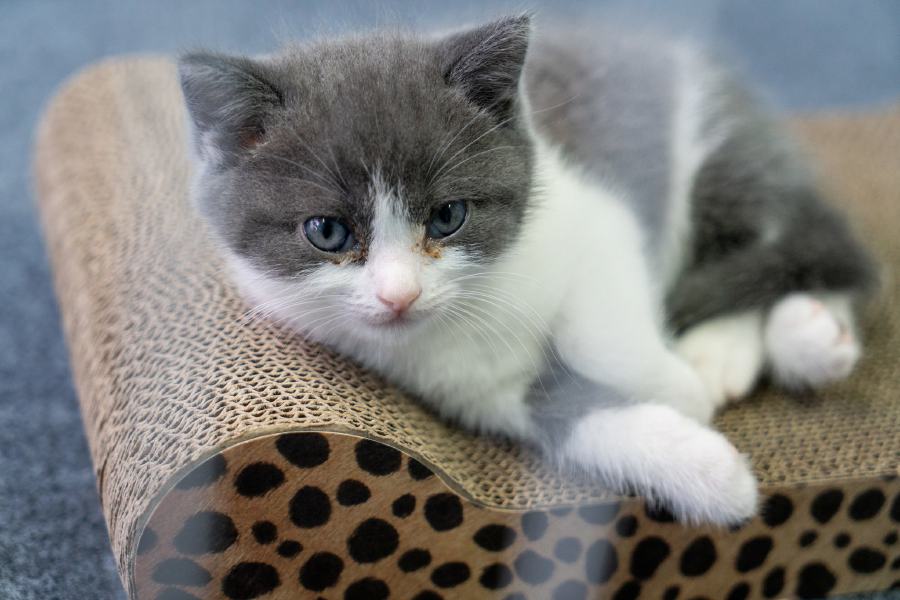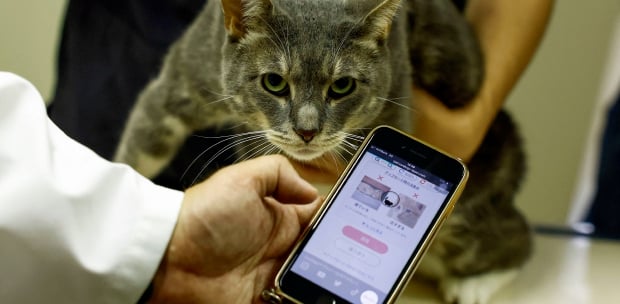BEIJING: Garlic was dead, and there was nothing Huang Yu could do. So on a cold winter day, he buried his cat’s body in a park close to his home.
Hours later, still heartbroken, the 22-year-old businessman recalled an article he had read on dog cloning in China. What if someday he could bring Garlic back to life?
“In my heart, Garlic is irreplaceable,” said Huang, who dug up his British shorthair and put the cat in his refrigerator in preparation for cloning him. “Garlic didn’t leave anything for future generations, so I could only choose to clone.”
That thought led him to Sinogene, a commercial pet-cloning company based in Beijing. Roughly US$35,000 (RM146,000) and seven months later, Sinogene produced what China’s official news media declared to be the country’s first cloned cat – and another sign of the country’s emergence as a power in cloning and genetics.
Mi Jidong, Sinogene’s chief executive, said the company decided to start cloning pets in 2015 after conducting a survey of roughly 1,000 people that showed there was demand. The company has cloned more than 40 dogs, including schnauzers, Pomeranians and Malteses, at a cost of about US$53,000 each, some as pets and others for medical research.
Pet cloning is largely unregulated and controversial where it is done, but in China the barriers are especially low. Many Chinese people do not think that using animals for medical research or cosmetics testing is cruel, or that pet cloning is potentially problematic. There are also no laws against animal cruelty.
“It satisfies the owner’s spiritual needs and increases happiness,” said Wang Chuduan, a professor at China Agricultural University in Beijing. “There is a market demand. So what’s the problem?”
To clone Garlic, scientists implanted skin cells from Huang’s original cat into eggs harvested from other cats. After an electric or chemical shock, 40 cloned embryos were implanted into four surrogate mother cats. That produced three pregnancies, two of which were miscarriages, said Chen Benchi, head of Sinogene’s medical experiments team.
“The harm is very small,” said Mi, Sinogene’s chief executive.
Scientists outside China have not yet inspected Garlic, who was born on July 21. But the company’s chief scientist, Lai Liangxue, was an assistant professor at the University of Missouri, and his cloning research has been published in the respected journals Nature and Science.
A visit to Sinogene’s laboratory on the outskirts of Beijing offered scenes out of something like a feline version of “The Handmaid’s Tale.” Garlic’s clone, a grey-and-white kitten, snoozed with his surrogate mother, a different breed from Garlic. He later played with a fur ball while three pregnant surrogate cats watched from cages. The new Garlic is scheduled to stay at Sinogene’s laboratory for another month for observation before he is sent to Huang.
Huang was initially put off by the roughly $35,000 price. But in a telephone interview from the eastern city of Wenzhou, he said getting Garlic back was worth more than that, even though his parents disapproved. The original Garlic died in January from a urinary tract infection at age 2.
On the day Garlic died and was buried, Huang exhumed Garlic’s corpse, wrapped it carefully and placed it in his refrigerator. He then waited for a Sinogene employee to arrive from Beijing to extract skin cells from Garlic and bank them. Huang decided about a month after Garlic’s death to go through with the cloning.
In his first meeting with the new Garlic in August, Huang found that cloning had not produced an exact copy of his former pet. The clone is missing a patch of black fur that graced Garlic’s chin. Sinogene said that clones might show slight differences in fur or eye colour and that an outside firm had proved the DNA matched.
“If I tell you I wasn’t disappointed, then I would be lying to you,” Huang said. “But I’m also willing to accept that there are certain situations in which there are limitations to the technology.”
At a news conference last month to unveil the cloned Garlic, Mi was quoted as saying that he was considering using artificial intelligence to transplant the memories of the original pet to the cloned one.
When asked about that statement, Mi said it was not something that his company would embark on but added that it was a possibility that the technology could provide.
“It’s a way to imagine the future,” he said. – New York Times





